Unlocking Referent Power: The Key to Effective Leadership
There are several sources of power in the sphere of influence and leadership. Referent power is a special kind of power that stems from a person’s charm, beauty, and interpersonal skills. This blog post will define referent power, explore its practical applications in the workplace, and analyze its role in effective leadership. Also explore the real-world examples from India to highlight the importance of referent power.
Understanding Referent Power
Also known as “charismatic power” or “personal power,” French and Raven identified it as one of the five sources of power in 1959. It signifies a person’s capacity to influence others because of their likable and admirable traits, disposition, and the trust and respect they inspire. People with high referent power frequently act as role models and inspire others to imitate them. This power isn’t based on possessing material or positional resources, such as reward power or legitimate power, but on personal attributes and relationships.

The Role of Referent Power in Leadership
Referent leadership is a style of leadership that relies on personal appeal and charisma. Leaders with referent power are influential as a result of the trust, admiration, and emotional bond they develop with their adherents.
The Significance of Referent Power in Leadership
- Inspiration and Motivation: Leaders with referent power have the ability to inspire and motivate their teams through their example and charisma. Typically, this motivation transcends the simple exchange of rewards and consequences.
- Trust and Loyalty: Referent leaders tend to earn the trust and loyalty of their followers, which can result in increased retention rates and commitment to organizational objectives.
- Receptive To Feedback: Referent leaders are frequently perceived as approachable and receptive to feedback. This makes them more flexible and amenable to change when required.
- Effective Communication: Referent leaders flourish at communication, a crucial leadership skill. They are able to communicate their vision and ideas in an engaging and relatable manner.
- Resolution of Conflicts: Leaders with strong referent traits can effectively mediate team conflicts due to the trust they’ve established.
Significance in the Workplace
Referent power is especially important for nurturing a positive and productive work environment in the workplace. Few examples:
- Team Development
Typically, leaders with referent authority excel at team building. They foster a sense of camaraderie and unity among team members, facilitating collaboration and the accomplishment of shared objectives.
- Employee Involvement
Employees tend to be more engaged and committed to their work when their leaders have high referent power. They are motivated to contribute to the team’s success because they have a strong sense of belonging.
- Conflict Management
Leaders with referent authority can effectively mediate in situations of workplace conflict. Their approachability and trustworthiness can help resolve conflicts and maintain a harmonious workplace.
- Example-Setting
Often, leaders with referent authority serve as models. Their conduct, work ethic, and values serve as a model for others, thereby nurturing a positive organizational culture.

Examples of Referent Power in Leadership
- Mahatma Gandhi
The influence of Mahatma Gandhi was crucial to India’s fight for independence. His charisma and unwavering commitment to nonviolence made him a revered leader and inspired millions.
- Ratan Tata
Former Tata Group chairman Ratan Tata is renowned for his referent authority. His ethical leadership and commitment to social responsibility earned him a great deal of respect, not only within the organization but also in the greater community.
- Dr. A.P.J Abdul Kalam
The former president of India, Dr. A.P.J Abdul Kalam, was admired for his inspirational leadership and vision for the country. His authority derived from his humility and close relationship with the youth.
Research and Statistics in India
- According to a study by the Great Place to Work Institute, organizations in India with leaders perceived as inspiring and ethical tend to have greater employee engagement.
- According to a survey conducted by LinkedIn in India, more than 85 percent of professionals believe that referent leadership, characterized by mutual respect and trust, is essential for a productive workplace.
- According to a study published in the Journal of Management Development, employees in India tend to remain longer in organizations where leaders have high referent power because they sense a stronger connection to the organizational values.
Nurturing Referent Power
Here are some tactics for people and leaders that want to develop referent power:
- Authenticity: Stay loyal to who you are. It is based on authenticity. Sincere and real people tend to attract others.
- Empathy: Exhibit empathy by being aware of and considerate of the thoughts, feelings, and viewpoints of others. This fosters rapport and trust.
- Effective Communication: Practice active listening and other communication techniques. It’s crucial to be able to communicate your thoughts in an engaging and straightforward manner.
- Inclusivity: Establish a welcoming atmosphere where each team member is treated with respect and given a voice. This increases your referent power and gives you a sense of community.
- Setting a positive example: Take the lead. For those you lead, the benchmark is established by your actions and behaviors.
Conclusion
Referent power, which derives from personal qualities, charisma, and the capacity to interact with others, plays an important role in leadership and the workplace. High referent power enables leaders to inspire, motivate, and establish trust and loyalty among their teams. In India, as well as in the rest of the world, people highly esteem this style of leadership, as research and statistics show its positive impact on employee engagement and retention.
The journey of cultivating referent power requires authenticity, empathy, effective communication, inclusivity, and positive role modelling. Aspiring leaders can utilize referent leadership to foster a more inspiring, engaged, and harmonious workplace.
DeiJobs partners with employers who prioritize inclusivity and recognize the strength that diverse perspectives bring to the table. These inclusive organizations actively seek to create a workforce that mirrors the rich tapestry of India.




